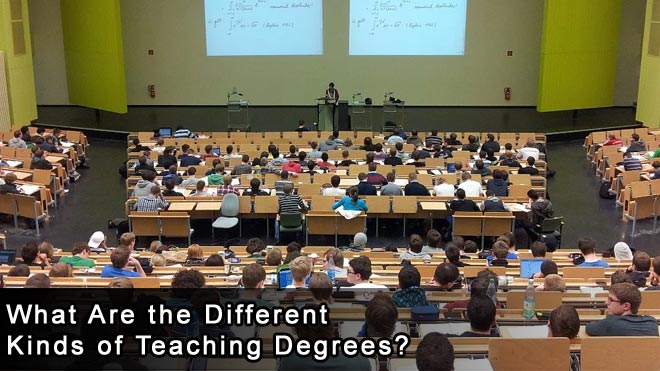What Are the Different Kinds of Teaching Degrees?
there are several different kinds of teaching degrees available, each requiring different amounts of years of study and with varying focuses.
Getting a degree in teaching can lead to a rewarding career, inspiring students of all types and ages. On a broader scale, educators better society as a whole, as they provide students with lifelong important skills and capabilities that will transfer onto their own future careers going forward.
As such, there are several different kinds of teaching degrees available, each requiring different amounts of years of study and with varying focuses. If you are looking into pursuing this degree, consider one of the following four types.
First How to Afford a Degree in Teaching
Before going for any kind of degree, it is imperative to have your finances figured out now in order to save yourself from headaches down the road while you’re attempting to finish your bachelors degree. A common option for many students is choosing to take out a student loan from a private lender.
Private lenders offer both flexible finances and repayment terms. For instance, you can pay monthly or every two weeks, depending on what works best for you and your budget after graduation.
To see if you qualify, you can fill out an application on a private lender’s site, where you will usually receive a response in just a few days. You can also apply with a cosigner in order to improve your chances of approval.
Associate’s
An associate’s degree is perfect for those who are not yet ready to enroll in a bachelor’s or who would like to go to community college for their first two years before transferring to a four-year university.
During these two years of study, you will be introduced to new methods on how to teach, what skills are required in education and how to communicate effectively with different kinds of students. With an associate degree, you can find jobs such as a teaching assistant, aide, or substitute teacher.
Bachelor’s
Getting a bachelor’s degree in teaching and education will set you up for a career working as a teacher in a variety of school settings.
In fact, during these four years of study, you will pick a specialized subject (such as English or math) and a focus on age level, such as elementary, middle or high school students.
You will learn how to develop lesson plans successfully and complete practicums where you will teach in a classroom environment.
Master’s
A master’s degree will typically provide you with a higher salary compared to those with just a bachelor’s. A masters usually require two years of study and a thesis.
You will delve deeper into teaching methods, curriculum development and develop a broader understanding of your subject concentration with this degree.
Ph.D.
Taking between five and seven years to complete, a Ph.D. is best suited for those seeking leadership roles in education or those who would like to teach at the university level.
Specifically, a Doctor of Philosophy in Education will provide future college professors with a deeper perspective in research methods, when it comes to teaching and developing a class curriculum. A Ph.D. usually requires a master’s or bachelors and prior experience in order to enter the program.








